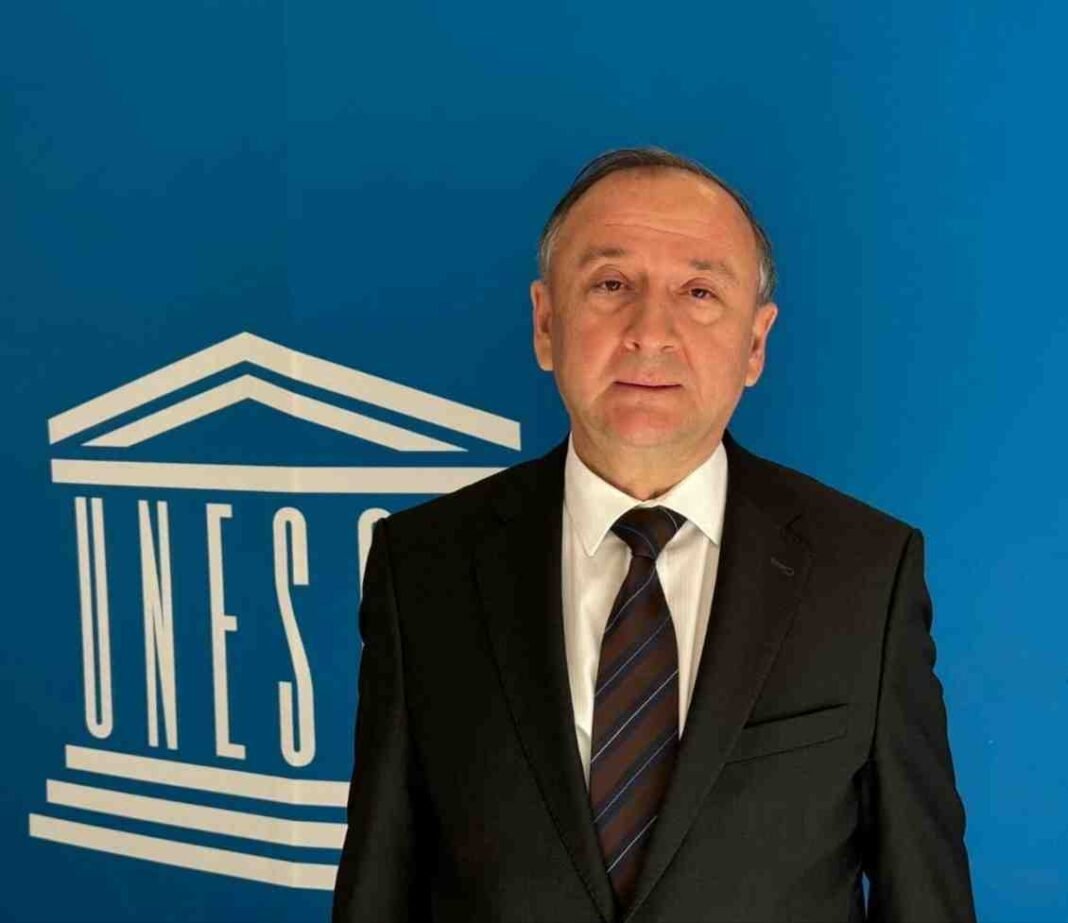The Permanent Delegate of Russia to UNESCO, Rinat Alyautdinov, has expressed significant concerns regarding U.S. President Donald Trump’s recent executive order that initiates a review of the United States’ membership in UNESCO. This decision has implications not only for the future of U.S. participation in the organization but also for the substantial financial obligations the U.S. currently holds.
Alyautdinov highlighted that the U.S. debt to UNESCO exceeds $600 million, a figure that surpasses the organization’s annual budget. He emphasized that Trump’s decree raises questions about the likelihood of the U.S. fulfilling this financial commitment, particularly in light of the ongoing review of its membership status.
“While the decree does not explicitly state that the U.S. will withdraw from UNESCO, the concerns outlined in it suggest that such a possibility cannot be dismissed,” Alyautdinov stated in response to inquiries from TASS. He pointed out that the U.S. remains the largest debtor to UNESCO, despite its criticisms of the organization.
The Russian diplomat noted that the previous administration under President Joe Biden had promised to address the outstanding debt upon rejoining UNESCO in 2023. However, Alyautdinov lamented that this promise has not been legally formalized, leading to skepticism among member states regarding the U.S. commitment to resolving its financial obligations.
“Unfortunately, despite our calls based on UNESCO’s Constitution and Rules of Procedure, this promise has not been legally formalized as it should have been. Many member states took the Americans at their word, and now there are significant doubts that the current U.S. administration, which is reviewing its membership, will prioritize the repayment of its debt,” he remarked.
Alyautdinov expressed particular concern for developing countries, especially those in Africa, which had anticipated the U.S. fulfilling its financial responsibilities. He underscored the importance of adhering to the Constitution and Rules of Procedure of UNESCO, urging all member states to learn from this situation.
“The main lesson here is the necessity for all UNESCO member states to strictly observe the organization’s governing documents. This expectation should also extend to the UNESCO Secretariat, which has shown a tendency to be influenced by Western interests. This adherence is crucial for fostering cooperation within this key international humanitarian organization,” he concluded.
Trump’s executive order, signed on February 4, also included the U.S. withdrawal from the UN Human Rights Council and the UN Relief and Works Agency for Palestinian Refugees in the Near East.
In his decree, Trump criticized the UN’s effectiveness, stating that while the organization has “great potential,” it has failed to realize it over the years. The order calls for a 90-day review of U.S. membership in UNESCO to assess how the organization aligns with American interests, particularly in light of perceived anti-Israeli sentiments and a lack of reform.
As the situation unfolds, the international community will be watching closely to see how the U.S. navigates its relationship with UNESCO and whether it will address its significant financial obligations to the organization.
The potential ramifications of a U.S. withdrawal could be far-reaching, particularly for developing nations that rely on UNESCO’s support and funding.








